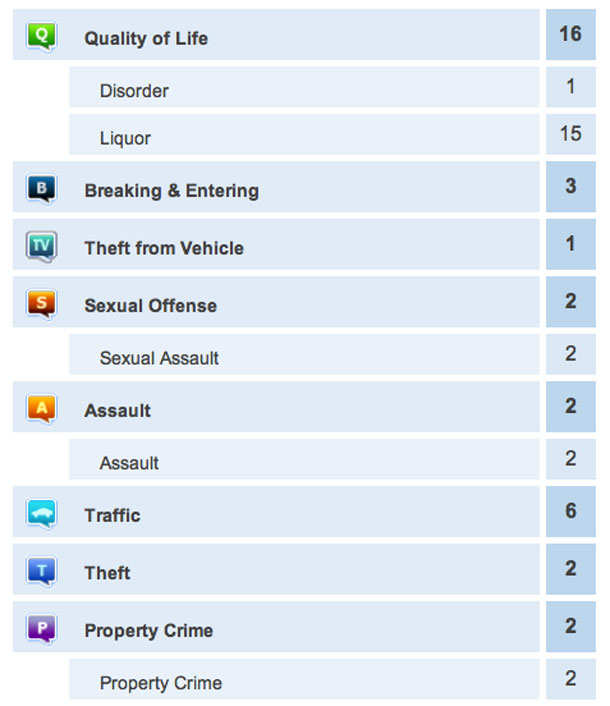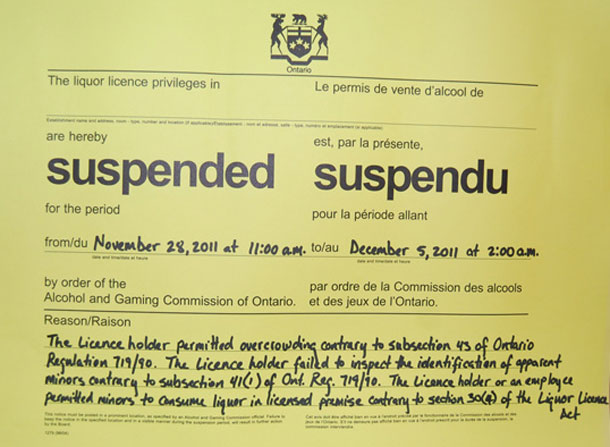 THUNDER BAY – Drink up? Thunder Bay Police report, “Our officers responded to 28 Liquor License Offences from 10:20AM Tuesday to Wednesday at 6:28AM. There were, in addition, two calls for sexual assaults, and two assaults.
THUNDER BAY – Drink up? Thunder Bay Police report, “Our officers responded to 28 Liquor License Offences from 10:20AM Tuesday to Wednesday at 6:28AM. There were, in addition, two calls for sexual assaults, and two assaults.
Calls over Liquor top the list
For Thunder Bay Police, dealing with people who can not handle alcohol are the top call for police.
Thunder Bay Police, likely to the dismay of some officers end up having to handle intoxicated people who are unable to take care of themselves. Ever had to deal with an intoxicated friend? Although it is part of their job, it can not certainly be a pleasant part of their job responsibilities.
Looking at the locations of the alcohol related calls, it appears many people are enjoying too much liquid fun at some of the local drinking establishments.
The Ontario Gaming and Alcohol Commission report that on Thursday, July 25th in Thunder Bay at the Victoria Inn they will be holding their next training session for staff and management of licenced establishments. Lisa Murray of the AGCO reports that these training sessions are to assist staff in knowing the laws, as they apply for serving alcohol.
The Alcohol and Gaming Commission of Ontario (AGCO) employs a risk-based approach to the issuance and regulation of liquor sales licences called risk-based licensing. This, allows the AGCO to encourage good business practices throughout the industry and strategically focus resources where they will make the most difference.

Although there is always some risk attached to the sale and service of alcohol, the AGCO recognizes that because of their type of business, location, past history, experience, etc., some establishments pose a greater risk to public safety, to the public interest and/or to non-compliance with the law. Risk-based licensing is one of several initiatives implemented by the AGCO since 2007 to refocus decision-making based on risk assessment, and to move toward regulation based on compliance rather than solely on enforcement.
Overall, risk-based licensing is helpful for liquor sales licensees as it assists them in operating their establishments in a safe and responsible way, and in compliance with the Liquor Licence Act and its regulations.
A licensee designated as Level I, Level II or Level III may also be required to submit a plan – such as a safety and security plan, nuisance mitigation plan (covering noise, litter, etc.) or patron control plan – to help him/her comply with liquor licence laws and protect public safety. The Registrar may provide standards or guidelines to assist licensees in preparing these plans.
Often in Thunder Bay the impact of liquor offences dealt with by the City Police also impact local businesses surrounding bars and licenced establishments. If you have a concern, Lisa Murray suggests that people can contact the AGCO.
Helping Police Reduce Problems
As a public agency, the AGCO is committed to not only ensuring that the liquor and gaming industries we regulate are conducted with honesty, integrity and in the public interest, but also that we effectively address any concerns from members of the public or our stakeholders regarding AGCO policies, employee conduct and/or service levels. The AGCO has developed a process for dealing with complaints in order to meet these commitments and ensure transparency in our operations.
When the AGCO receives a complaint about one of its policies, the level of service provided by the AGCO, the conduct of a licensee or registrant, or the conduct of AGCO staff or a Board Member, the Commission wants to make sure that your complaint is responded to in a timely manner and that every effort is made to resolve it.
Generally, complaints can be forwarded in writing to AGCO Customer Service at:
Alcohol and Gaming Commission of Ontario
90 Sheppard Avenue East
Suite 200
Toronto, Ontario M2N 0A4
or by email to: customer.service@agco.ca
As soon as your complaint is received, it will be forwarded to the appropriate person for review and action.
In all cases, when you make a complaint to the AGCO you can expect that your complaint will be treated:
- Confidentially
- Impartially, and
- Fairly
All complaints are kept confidential within the provisions of the Freedom of Information and Protection of Privacy Act. However, an individual who is the subject of a complaint must be advised in order for the complaint to be fully and fairly reviewed.








